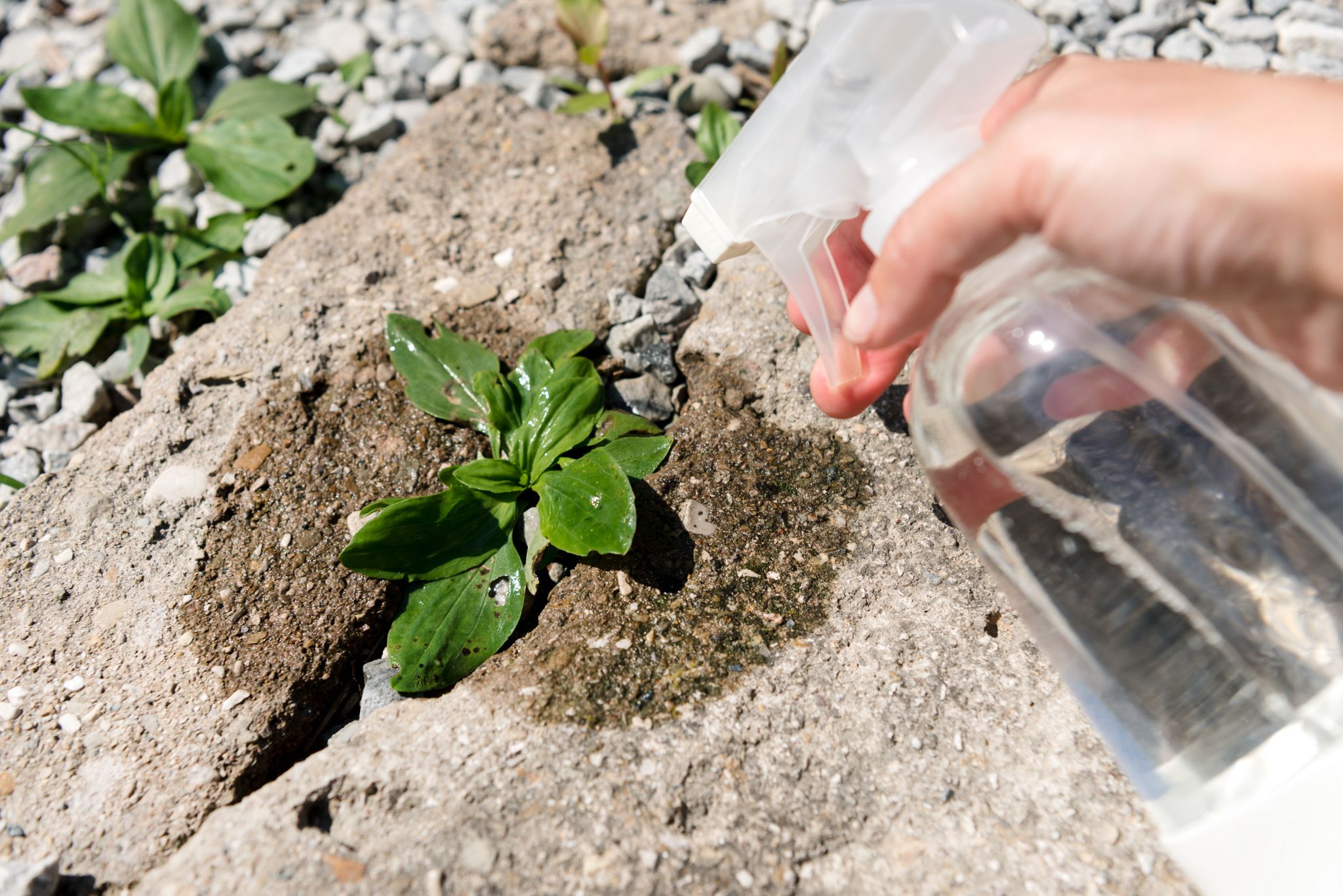Remove unwanted plants safely with this 3-Ingredient Homemade Weed Killer using Vinegar
You can make a potent weed-killing mixture using only a few common household items.
For people who garden, weeds are just a normal part of taking care of their land. You’re in luck—there are lots of ways to deal with them. For many over-the-counter choices, strong chemicals are used. However, you can make your own organic option with vinegar, which you probably already have in your pantry. Acetic acid, which is found in household vinegar, can get rid of pests effectively. Next, we’ll show you how to make a vinegar weed killer by mixing dish soap and salt with vinegar.
How to Kill Weeds with Vinegar
Acetic acid in vinegar kills plants directly. Rebecca Sears, top gardening expert at Seeds of Change, says:
“The acid in vinegar breaks down weeds’ cell walls and dries them out, killing them.” “Vinegars that you keep in your kitchen, such as white vinegar, contain a level of acidity that can help remove weeds.”
Vinegar Weed Killer: When to Use It and How
When weeds are actively growing and not dried out, use vinegar as a weed killer. Applying vinegar weed killer in the middle of the day or first thing in the morning is ideal because the solution evaporates too fast in very hot weather. Lawnbright’s creator, Craig Elworthy, recommends waiting at least 24 hours before using vinegar-based weed killers. “This allows the vinegar solution to effectively penetrate the weeds without being washed away”.
Making a Vinegar Weed Killer: The Recipe
According to Elworthy, a few drops of dish soap make the vinegar adhere better to the weeds and penetrate their waxy surfaces, making this DIY weed killer even more efficient. The essential ingredient is vinegar, though.

Things You’ll Need
- 1 gallon vinegar
- 1 tablespoon of dish soap
- 1 cup salt (optional)
Steps
- A jar should be filled with one gallon of white vinegar.
- Add some dish soap, one tablespoon at a time.
- Optional: Add one cup of salt.
- Make sure to mix the solution well until all the items are well mixed.
- Put the amount you want into a garden sprayer.
Adding Salt
If you want to give your vinegar weed killer an extra boost, you don’t have to add salt. “Salt can act as a desiccant and help dehydrate and kill the weeds,” Elworthy says. “Be careful with salt, though, as it will alter the pH and also harm the surrounding soil if used in excess.”
How to Kill Weeds with Vinegar
When you use vinegar to get rid of weeds in your garden, make sure you wear gloves to keep your skin from getting hurt. “I’d recommend wearing long trousers and sleeves as well, and of course keep the mixture away from the eyes and face,” Sears adds.
Once you’re safe, spray the weed killer directly on leafy weeds, making sure to hit the leaf tissue. “Allow the vinegar weed killer to sit on the weeds for several hours or overnight,” he says. “You should notice a big difference by the next day.
Limitations of Vinegar Weed Killer
There are some problems with using vinegar to kill weeds, but it is an effective and natural way to do it. “Vinegar typically acts as a contact herbicide, meaning it only affects the parts of the plant it directly contacts,” he says. It will kill weeds in your garden, but it might also kill other plants you want to keep there by mistake.
Another problem with vinegar weed killer is that it doesn’t usually stay active in the soil. This means that weeds may grow back from seeds or roots that are left behind. “For this reason, it’s not effective on weeds with deep root systems like dandelions, as the herbicide does not get drawn down into the taproot,” Elworthy says. Lastly, it’s important to use vinegar weed killer carefully because it can change the pH of your soil and hurt good microbes.
Long-Term Control of Weeds
You shouldn’t rely on vinegar weed killer as a last resort for weed control because of its limitations. The most effective method of weed control, according to horticultural consultant Eva Reutinger, is varied and complex. “You never want to stick to one method; a combination of manually pulling, applying organic herbicides, and thoughtfully choosing plantings will be best.” Natural and effective weed prevention methods include planting ground coverings, using mulch, and maintaining healthy plants.
Common Mistakes to Avoid
- Using Vinegar on Desirable Plants: Vinegar is non-selective and can harm any plant it comes into contact with, so be careful to only spray the weeds.
- Skipping Reapplications: Persistent weeds may need multiple treatments. Don’t get discouraged if you need to reapply the solution.
- Ignoring Safety Precautions: Always use gloves and eye protection, especially with higher acidity vinegar.









